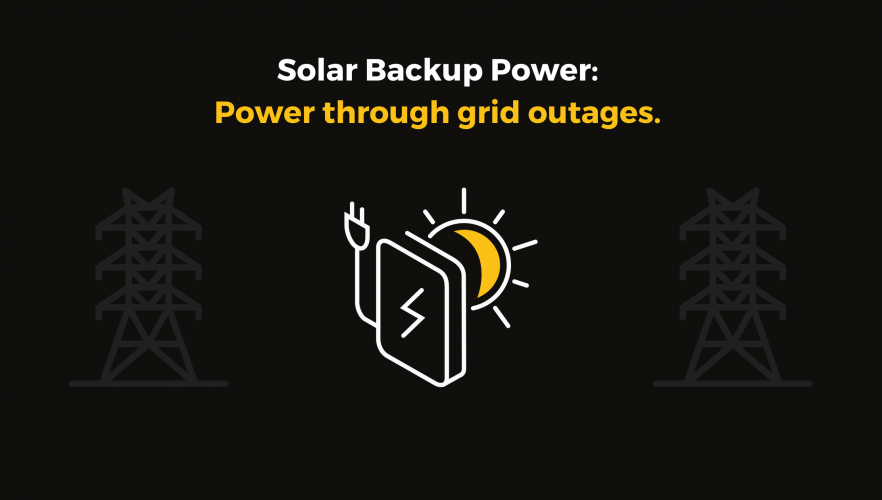
Solar Backup Power: Power Through Grid Outages
In the wake of increasing instances of extreme weather, power failures and soaring energy prices have many concerned about energy sources. The good news is that powering your home with stable, reliable, and grid-independent energy is possible.
By installing solar backup power to go along with your rooftop solar system, you can power through potential grid outages during extreme weather events.
What happens when the grid fails?
A grid outage can make you feel powerless. At its best, it’s an inconvenience. At its worst, it can be life threatening. In the moment it’s impossible to tell whether the power will flick back on in a few minutes, or a few days. The unpredictable nature of grid outages also makes planning for them exceptionally difficult.
Fortunately, homes with a solar energy system and backup power storage don’t lose power when the grid goes down. The system’s backup battery allows customers to store excess energy generated on sunny days—making sure the home maintains an energy source 24/7 during an outage. The energy levels stored within a battery can even be monitored real-time so you’re always aware of your home’s energy status.
During a grid outage, some solar backup power systems allow customers to choose the essential appliances that they would like to keep powered. These typically include temperature control systems, Wi-Fi, refrigerators etc., but these modern systems allow customers to customize the distribution of their backup power. This ensures the protection of the assets most valuable to each customer during a grid outage caused by a storm or extreme weather event.
In other words– peace of mind.
What is a solar backup power?
In most cases, traditional solar PV systems are tied to the utility grid. When the system’s solar panels produce more energy than is consumed, the excess energy is fed back to the grid. On the other hand, when a home or business needs more electricity than the system’s solar panels to produce, it can draw the necessary power from the grid.
For systems with solar backup power, however, excess energy produced by the system’s solar panels can be stored for later use. The higher the battery’s capacity or the greater number of batteries there are, more solar energy that can be stored. By utilizing backup power storage, one can greatly optimize a system’s self-consumption. The battery only send excess energy to the grid when it is fully charged and will only draw power from the grid when the battery reserve has completely run out.
Is solar reliable in extreme weather?
Most people probably associate solar energy with warm regions receiving little rain during the year. However, contrary to common perception, solar is actually slightly more effective in colder temperatures than hot.
Additionally, solar has proven itself durable and reliable (coming with a 25-year warrantee) during cold spells, rain, high winds, and snowfall. Some panels even have the capability of shedding snow autonomously.
What solar backup power options are available?
As demand for energy storage has grown significantly, manufacturers such as Tesla, Generac, and Enphase have launched a number of solar backup power products ideal for home or business use. Which battery you choose depends not only on the specifications of the product but on your individual needs. The right storage capacity and system design should be aligned with your level of consumption and power needs.
Over the coming weeks, we will be rolling out product reviews of various solar backup power storage systems.
Solar Alternatives’ energy experts are here to answer your questions about battery storage solutions and help you find the right fit for your home or business. Get in touch with us today to schedule a free consultation.

